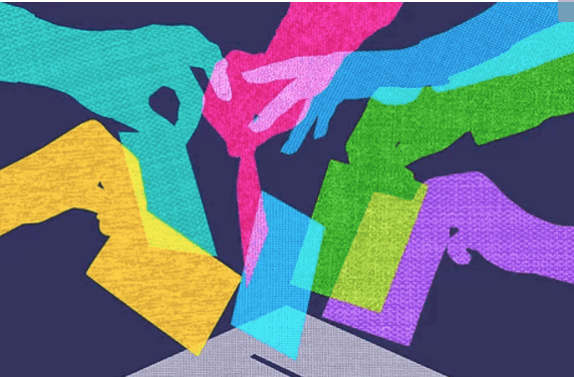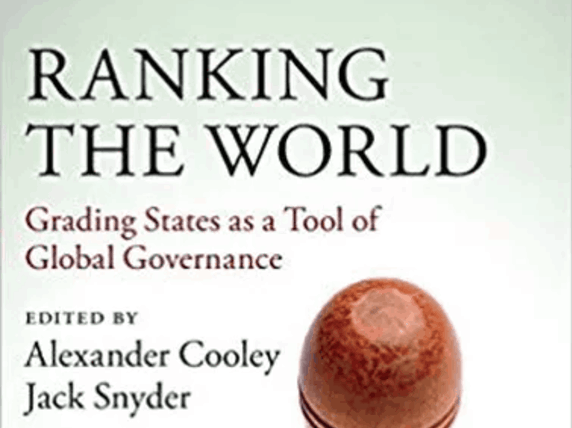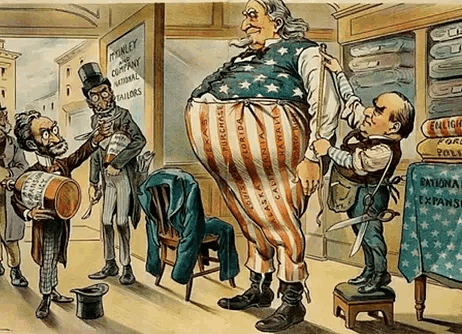You can see my ongoing research and work in progress HERE. Book info HERE.
Seva Gunitsky, Semuhi Sinanoglu, and Sahib Jafarov.
Prosecuting the Powerful: Historical data shows putting leaders on trial is a healthy democratic practice. Foreign Policy, October 28. 2025. (free access link)
Kyungwon Suh, Ryan Griffiths, and Seva Gunitsky
Hegemonic Shocks and Patterns of Secession. International Interactions (full access online pre-print June 2025)
Ryan D. Griffiths and Seva Gunitsky.
The New Price of Statehood. Foreign Affairs, May 20, 2025.
[PDF]
Anna Lysenko and Seva Gunitsky.
The Invisible Front: Ukraine’s IT Army and the Evolution of Cyber Resistance. Post-Soviet Affairs (online pre-print May 2025)
The Forgotten Dystopian Vision That Explains Trump’s Canada Obsession. The New Republic, March 31, 2025.
The Bully in the Bubble: Putin and the Perils of Information Isolation. With Adam Casey. Foreign Affairs, February 4, 2022. [PDF]
There's Plenty of Blame to Go Around on Ukraine. Foreign Policy, January 24, 2022. [PDF]
Great Powers and the Spread of Autocracy Since the Cold War. In Before and After the Fall: World Politics and the End of the Cold War, edited by Nuno Monteiro and Fritz Bartel. Cambridge University Press, 2021. [PDF]
Democracies Can't Blame Putin for their Disinformation Problem. Foreign Policy, April 21, 2020 [PDF]
The Weakness of the Strongman. With Adam Casey. Foreign Affairs, March 24, 2020 [PDF]
The Great Online Convergence: Digital Authoritarianism Comes to Democracies. War on the Rocks, February 19, 2020
Rival Visions of Parsimony. International Studies Quarterly 63(3): 707-16. September 2019 [PDF]
Critical Dialogue (with Daniel Ziblatt). Perspectives on Politics 17(2): 492-97, June 2019 [PDF]
Author’s Response. H-Diplo Book Roundtable Forum 20.22. January 2019 [PDF]
A Country Illegible Even to Itself. (Review of The Future Is History by Masha Gessen.) Inroads 44, December 2018
The Wilsonian Bias in the Study of US Foreign Policy. With Andrei Tsygankov. Problems of Post-Communism 65.6: 385-393. December 2018 [PDF]
Democratic Waves in Historical Perspective. Perspectives on Politics 16.3:634-651. September 2018 [PDF]
Democracy’s Future: Riding the Hegemonic Wave. The Washington Quarterly 41.2:115-135. July 2018 [PDF]
One Word to Improve US Russia Policy. The New Republic, April 27, 2018
The False Dawn of International Law. (Review of The Internationalists by Oona Hathaway and Scott Shapiro). War on the Rocks, January 15, 2018
Defining the State: It’s a Family Affair. In Comparing International Systems in World History, ISQ Online Symposium, November 28, 2017 [PDF]
The Lost Leviathan. (Review of The H-Word by Perry Anderson). The American Interest, August 24, 2017 [PDF]
These are the three reasons fascism spread in 1930s America – and might spread again today. The Monkey Cage (Washington Post), August 12, 2017
Trump and the Russian Money Trail. Duck of Minerva, July 14, 2017
What Monday’s subway bombings mean for Putin’s Russia. The Monkey Cage (Washington Post), April 6, 2017
How to unfreeze Canada’s strategy in Ukraine. The Globe and Mail, March 20, 2017
How Norms Die. With Tanisha Fazal. Political Violence @ A Glance, March 13, 2017.






